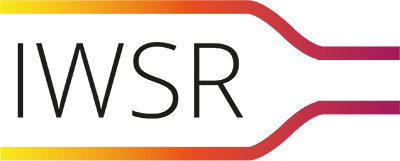
Pre-pandemic, South Africa and Nigeria accounted for almost 45% of total beverage alcohol volumes in Africa. As Covid-19 has unfolded in 2020, both South Africa and Nigeria have witnessed substantial declines in alcohol consumption due to government restrictions and broader economic difficulties. IWSR consumer research data shows that self-reported drinking habits has declined for every single beverage alcohol category in a trend that is evident across the spectrum of consumer demographics, regardless of gender, generation or income.
Surprisingly, however, the net results of alcohol spending among consumers has remained relatively flat in both countries as the minority accelerate spending on alcohol, while purchasing decreases among the rest of the LDA population. While consumption trends in both Nigeria and South Africa are consistent across consumer demographics, there is more variation when it comes to purchasing trends.
Income levels are volatile in Nigeria, while in South Africa, far more households have seen income decreases than income increases in the second half of 2020. Like many other countries, the economies of both nations have been battered by the coronavirus pandemic.
Nigeria, which is Africa’s biggest economy and most populated nation, slid into recession after its GDP contracted for two consecutive quarters, impacted by coronavirus lockdowns and low oil prices. The International Monetary Fund (IMF) expects the nation’s GDP to drop 4.3% in 2020, while in August, the World Economic Forum reported that 27% of Nigeria’s labour force (more than 21 million people) is now unemployed.
Economic activity slowed after the Nigerian government imposed a lockdown back in April, which has since been lifted in phases. Lagos lawmakers, meanwhile, have warned that another statewide lockdown is on the cards if Covid-19 cases continue to rise.
South Africa’s lockdown measures, meanwhile, have been among the toughest in the world and led to the near-complete shutdown of the country’s beverage alcohol industry for a number of months. Government officials announced a ban on alcohol sales in the on-trade, brick and mortar retail and ecommerce on 27 March. On 1 June, the ban on brick and mortar and ecommerce sales was temporarily lifted, only to be reintroduced on 12 July until 17 August. On-trade alcohol sales remained completely off limits until this time.
The IMF predicts that South Africa’s GDP will plunge 8% in 2020, while a report by the United National Development Programme estimates that up to 80,712 people could lose their jobs as a direct result of Covid-19, exacerbating inequality in the country. IWSR data shows that South Africa will likely see over a decline of over 30% in beverage volume from 2019 to 2020.
Despite the challenges arising from the pandemic, IWSR findings indicate that beverage alcohol consumers in both South Africa and Nigeria are cautiously confident about the future. However, there are variations in consumer behaviour when it comes to risk tolerance, with some who claim they feel ‘comfortable’ with the current situation and those who feel ‘uncomfortable’.
In South Africa, 36% of drinkers – mostly men – are ‘comfortable’ consumers and are keen to return to an on-trade setting if they haven’t already. Conversely, 53% – mostly women – are ‘uncomfortable’ consumers and are likely to confine their drinking largely to the at-home environment for the foreseeable future.
In Nigeria, 40% of drinkers – who identify as ‘comfortable’ consumers, are likely to be based in city centres and have recently increased incomes – are tentatively returning to on-trade environments. Like in South Africa, the remaining ‘uncomfortable’ majority are likely to confine their drinking to the home and reduce their spend on alcohol. However, there is no apparent gender or generational skew when it comes to ‘comfortable’ or ‘uncomfortable’ Nigerian consumers.
Both Nigeria and South Africa have seen moderate increases in ecommerce beverage alcohol sales, with mixed or declining performance in supermarkets and specialist shops. Another noticeable shift that relates to both markets is a change in preferred packaging formats. South Africans used a wider variety of packaging formats in 2020, with small multipacks of beer and cider proving most popular. Conversely, in Nigeria, consumers have been more drawn towards single-serve formats, suggesting that alcohol purchases are usually made for immediate consumption.
IWSR research shows that while overall self-reported consumption has declined and spend remained steady in both South Africa and Nigeria, brands will need to take a nuanced approach to appeal to consumers with varying economic prospects and social/health concerns. The fact that spend is stagnant amid lower consumption is relatively heartening news for premium drinks brands with an interest in South Africa and Nigeria.
You may also be interested in reading:
Hard seltzers drive a resilient US beverage alcohol market in 2020
Beverage alcohol ecommerce value grows by 42% in 2020, to reach US$24 billion
Will Covid-19 disrupt premiumisation trends in the Global Travel Retail channel?
Category
Market
- Beer
- Brandy
- Cider
- Gin
- Irish Whiskey
- Low-/No-Alcohol
- Mixed Drinks
- RTDs
- Rum
- Scotch
- Spirits
- Tequila
- US Whiskey
- Vodka
- Whisky
- Wine


